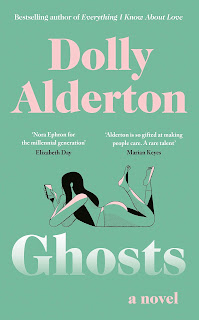The Reader- Bernard Schlink
This is one of the few times where I stumbled upon a book thanks to the excellently made movie adaptation of it (there's Kate Winslet omg!!). The Reader made me bawl my eyes out like an angry crier while also making me susceptible to the inner workings of what exactly is moral behavior when it comes in conflict with feelings of love and adoration.
Micheal Berg, at the young age of fifteen, falls ill on his way home and is rescued by a woman named Hanna Schmitz who is not only kind enough to comfort him but also walks him home. After recouping from his illness, he finds himself immensely attracted to this woman who is twice his age while also fearing the chance of being reprimanded by her. Soon enough, Micheal is involved in an affair with Hanna which makes him forget about everything a fifteen-year-old should be doing (and not be doing). While talking about school, Hanna asks Micheal to read to her which goes on to become an essential part of their routine. As soon as the two would meet, much to Micheal's dismay, Hanna would make him read before letting him make love to her. Soon enough, the two have developed a routine that Micheal defines as "a glide path" of his love for Hanna. However, one unfortunate day, Hanna suddenly disappears leaving Micheal guessing and blaming himself for her absence.
After a span of many years that are lined with feelings of pain and numbness, Micheal who is now a law student sees Hanna during a trial for a war crime committed by the SS guards one of whom is Hanna herself. While the painful memories come rushing back, Micheal is faced with a dilemma as he realizes something about Hanna that can probably get her a lighter sentence.
Set in post-war Germany, the plot begins as an erotic love story that has both characters bewitched by feelings of attraction and love which makes them forgo all notions about morality and age. However, as the story progresses it turns into a philosophical journey for both characters as they are faced with one such truth that could have changed the path of their story not just before but also after the trial of Hanna.
The central idea or one of the main questions that the author ponders over is the fact that atrocities like the Holocaust have marred the sense of so many yet what are we supposed to do with this knowledge and the guilt of the same. Instead of misplacing it, does the knowledge and the guilt of horrors like the Holocaust which affected generations of innocent people have an outlet that actually does justice to those who were victims while also bringing absolution for the perpetrators?


Comments
Post a Comment